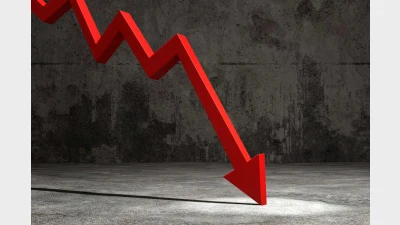MySuper funds see largest fee decline in almost a decade



New research from Rainmaker Information has revealed significant reductions in superannuation fund fees across all segments.
Rainmaker’s Superannuation Benchmarking Report examined 1,500 super fund fee options across 354 products.
The research house recorded a 2 per cent decline in super fees over the past year to 0.93 per cent per annum. This was the lowest total expense ratio on record.
Despite the reduction, Australian members paid $32 billion in fees to super funds, an increase of 3 per cent.
MySuper, the most competitive segment covering the most members, saw a 0.05 per cent decline to 1.0 per cent over the year to 30 June 2023.
“This is the biggest fall in the MySuper benchmark fee since 2014,” said Pooja Antil, research manager at Rainmaker. “Of the MySuper products, fees are now level for retail and not-for-profit funds.”
Self-managed super funds (SMSFs) have average fees of 0.65 per cent, making it the cheapest segment.
Personal and retirement products are still charging higher fees of 1.16 per cent and 1.07 per cent, respectively.
Overall, approximately $3.5 trillion is being managed by super funds for Australian members, an increase from $3.3 trillion in the previous year.
Rainmaker also observed that total fees paid are rising twice as fast as funds under management (FUM).
Fee revenue rose by 3 per cent, while super FUM increased by just 1.5 per cent.
According to Antil, this discrepancy indicates a potential diseconomies of scale effect, which could see regulatory attention in the near future.
“While fee revenue increased 3 per cent over the past year, this is lower than inflation and the overall pool of funds under management in superannuation has also increased in that time,” Antil said.
“Any reduction to the average fees is a good result for consumers, and we should encourage a healthy and competitive superannuation market that continues to put downward pressure on fees.”
Recommended for you
Insignia’s Master Trust business suffered a 1.9 per cent dip in FUA in the third quarter, amid total net outflows of $1.8 billion.
While the Liberal senator has accused super funds of locking everyday Australians out of the housing market, industry advocates say the Coalition’s policy would only push home ownership further out of reach.
Australia’s largest superannuation fund has confirmed all members who had funds stolen during the recent cyber fraud crime have been reimbursed.
As institutional investors grapple with shifting sentiment towards US equities and fresh uncertainty surrounding tariffs, Australia’s Aware Super is sticking to a disciplined, diversified playbook.













